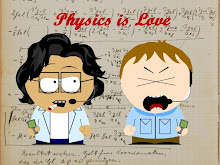I have been bothered by this issue for quite some time: the need for a metanarrative that explains the human experience by contextualizing it (usually) in a metaphysical scheme. Thus enter religion, the Enlightenment, capitalism, socialism, etc.--all attempting to make sense of the confusing labyrinth that we as individuals and as groups/communities wander through, going mad at every turn and losing direction with every step forward.
I have turned to a sense of radical skepticism, pure Cartesian doubt, that has put me in quite a precarious situation. I am without truth or direction, but I find myself needing it. I look for signs. I seek visions--religious, philosophical, reductionistic, or holistic epiphanies, but I find myself lacking in any confirmation of any absolute value. Yet, unlike someone who is true to one's beliefs, I am unable to abandon the very values that I deconstruct, only to find myself withering because of my inability to stick to the meta-conviction of ridding myself of convictions, only to trap myself in quite a rut.
By reading the realist perspective on epistemic relativism (Sokal and Bricmont's book, Fashionable Nonsense), I was convinced by the fact that we can make arguments of "objective reality," even without establishing absolute proof of its existence. Sokal and Bricmont agree that radical skepticism and solipsism cannot be refuted, but it is impractical to continue with such silliness when you can play in the system called "nature." A friend of mine who has graduated from Northwestern University's epistemology program has also given me this same argumentation: it is impossible to establish absolute knowledge, but when we suspend that belief and create a rigorous self-consistent system, its beauty will be such that we forget the pettiness of nihilism and absorb ourselves into the beauty of phenomenological experience. Similarly, science attempts to establish the natural world as the criterion for examining various claims, although it is very careful to make sure that its boundaries are not crossed (although many have, Cf. abortion and "personhood"). However, does this itself not sound like a form of mysticism? Science establishes faith in an outside world that is supposedly independent of subjective experience, but categorizes everything else under this undefined region called "subjective experience." Similarly, mysticism and other forms of metaphysics dismiss the physical world as a source of delusion and, in many cases, evil (for example, Gnosticism, the Dharmic religions, and esoteric Christianity hold strongly to this anti-materialism). It seems to me that truth does not necessarily exist, as the realists try to define it, and it is based on choice. Of course, this is the viewpoint that I have always established as the beginning of all my ontological and epistemological discourse, but I have never felt such a strong conviction of such a thing. By this road, any form that can be fitted into the experience--any interpretation or explanation--is valid as long as it fits the system. I have had a similar experience with reading about formal systems and the interpretations of algorithms made by Douglas Hofstadter in Godel, Escher, Bach, but I have not established its implications to this extent--what if the system itself is an interpretation? That would mean that there is no beginning or end, something can be created out of nothing, yet that something is nothing and that nothing is something. Of course, to Analytics and other forms of rigorous philosophy, this entire rant is pure bullshit. There is nothing "meaningful" in my sentences or my analysis. But regardless of the somethingness or nothingness in this post, there is something that compells the sharing of this story--my humanity. Although my friends may disagree with my assessment, I believe that Jodie Foster's performance in the adaptation of Carl Sagan's Contact truly holds some undefined essence of humanity--belief, awe, and humanity. Of course, sharing it, continues to be nothing but a wish, but that experience, that awe and inspiration... perhaps that is what is a spiritual experience. If I were somewhat sober in the sense of being a reductionist, I would argue that the claim I am making attempts to establish aesthetics over truth, but maybe there is something in the aesthetic that I can play with. Perhaps it is through the aesthetic, I can rediscover faith and spirituality. However, I do not know where I stand, for I cannot maintain the existence of anything at all--physical, metaphysical, ante-physical. Perhaps all I can say is I'm looking for something. It doesn't matter if it exists or if it doesn't. It's just a search. It's just being human.
Sunday, May 27, 2007
Subscribe to:
Post Comments (Atom)


No comments:
Post a Comment